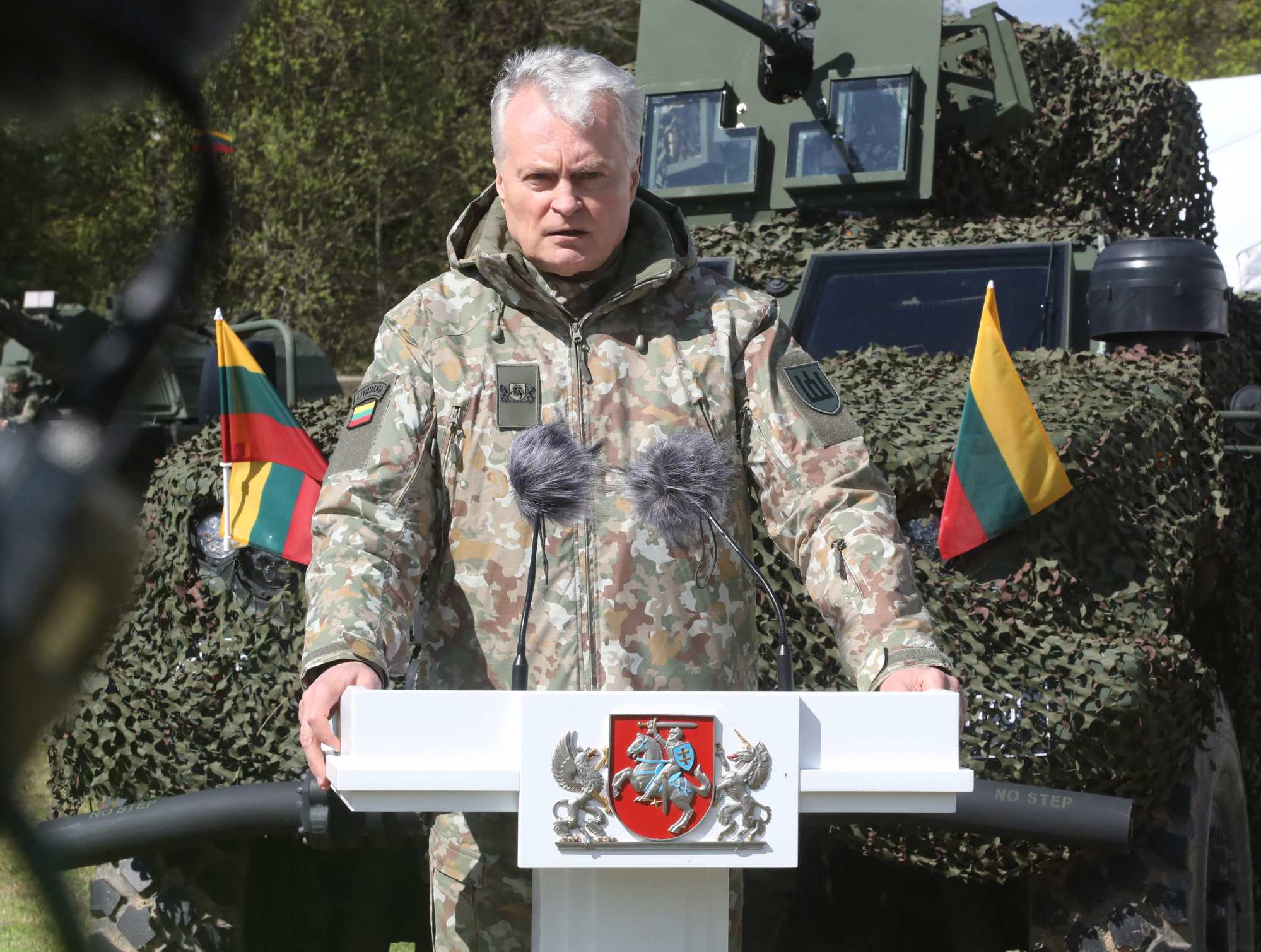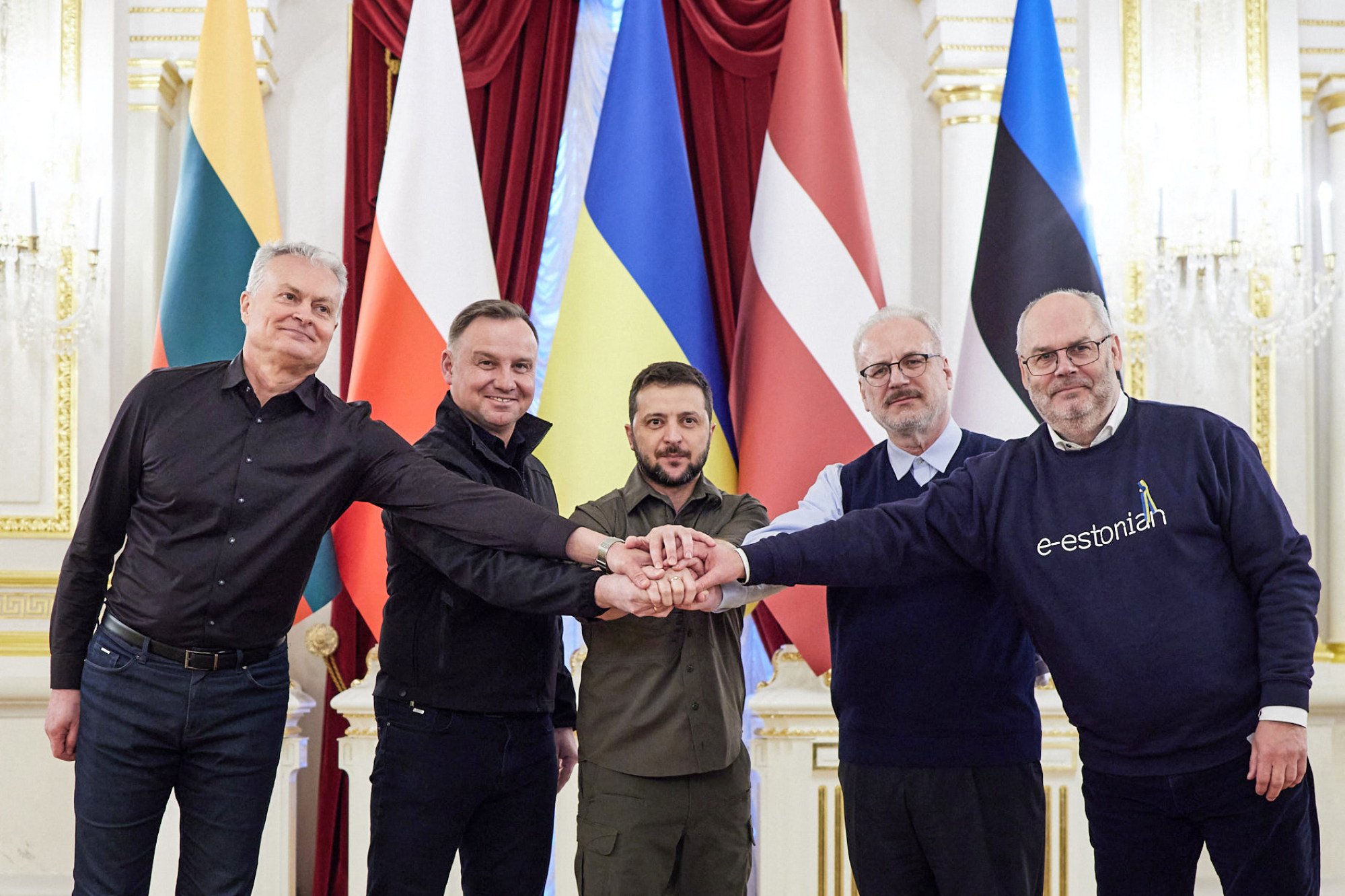
Lithuanian President Gitanas Nauseda re-elected in vote marked by Russia fears
- Gitanas Nauseda elected to a second, five-year term as rival Ingrida Simonyte concedes defeat
- Russia’s war in Ukraine dominated the presidential campaign in the Nato member nation of 2.8 million
Lithuania’s President Gitanas Nauseda won re-election by a landslide in a vote marked by defence concerns over neighbouring Russia, official results showed.
The count published by the electoral commission on Sunday showed that Nauseda won 74.6 per cent of votes with 90 per cent of ballots counted after polls closed in the second-round vote.
Voters “have handed me a great mandate of trust and I am well aware that I will have to cherish this,” Nauseda, 60, told journalists in Vilnius.
“Now that I have five years of experience, I believe that I will certainly be able to use this jewel properly, first of all to achieve the goals of welfare for all the people of Lithuania,” he said.

His opponent, Prime Minister Ingrida Simonyte, won 23.8 per cent of the vote and congratulated Nauseda in comments to reporters.
The Lithuanian president steers defence and foreign policy, attending EU and Nato summits, but must consult with the government and parliament on appointing the most senior officials.
While the candidates agree on defence, they share diverging views on Lithuania’s relations with China, which have been strained for years over Taiwan.
Both candidates agree that the Nato and EU member of 2.8 million people should boost defence spending to counter the perceived threat from Russia, and to that end the government recently proposed a tax increase.
“Lithuania’s independence and freedom is like a fragile vessel that we must cherish, protect and prevent from cracking,” Nauseda told journalists late Sunday.
“With the re-election of Gitanas Nauseda, we will see continuity in foreign and security policy, areas where the president will try to remain active,” Rima Urbonaite, a political analyst at Mykolas Romeris university, said.
Vilnius fears it could be next in the cross hairs if Moscow were to win its war against Ukraine.
Lithuania is a significant donor to Ukraine, which has been battling Russia since the 2022 invasion. It is already a big defence spender, with a military budget equal to 2.75 per cent of GDP.

It intends to purchase tanks and additional air defence systems, and to host a German brigade, as Berlin plans to complete the stationing of around 5,000 troops by 2027.
Ukrainian President Volodymyr Zelensky was one of the first leaders to congratulate Nauseda.
“You have been by our side every day and night throughout these most difficult years,” Zelensky wrote on social media platform X.
“I am confident that working together, we will ensure freedom, peace, and security in Ukraine, the Baltic states, and throughout our Europe.”
Pensioner Ausra Vysniauskiene said she voted for Nauseda.
“He’s an intelligent man, he speaks many languages, he’s educated, he’s a banker,” the 67-year-old.
“I want men to lead, especially when the threat of war is so big.”
Simonyte, the 49-year-old candidate of the ruling conservatives, was running for president again after losing to Nauseda in the last presidential ballot.
The uneasy relationship between Nauseda and Simonyte’s conservatives has at times triggered foreign policy debates, most notably on Lithuania’s relations with China.
Bilateral ties turned tense in 2021, when Vilnius allowed Taiwan to open a de facto embassy under the island’s name – a departure from the common diplomatic practice of using the name of the capital Taipei to avoid angering Beijing.
China, which considers self-ruled Taiwan a part of its territory, downgraded diplomatic relations with Vilnius and blocked its exports, leading some Lithuanian politicians to urge a restoration of relations for the sake of the economy.
Nauseda sees the need to change the name of the representative office, while Simonyte pushed back against it.
But voters also cited personal differences between the candidates, as well as economic policy and human rights.
Simonyte drew support from liberal voters in bigger cities and traditional conservative voters.
A fiscal conservative with liberal views on social issues, she notably supports same-sex partnerships, a controversial issue in the predominantly Catholic country.
“I would like to see faster progress, more openness … more tolerance for people who are different from us,” she said when casting an early vote.
Nauseda, who maintains a moderate stance on nearly all issues, has established himself as a promoter of the welfare state, with conservative views on gay rights.

.png?itok=arIb17P0)